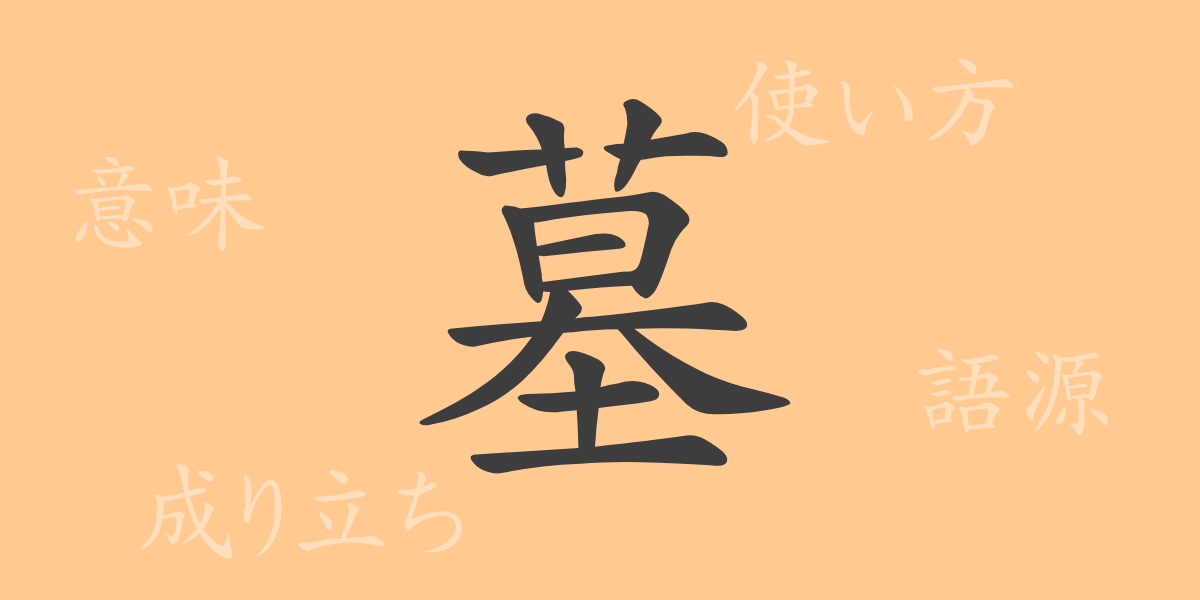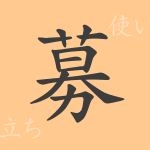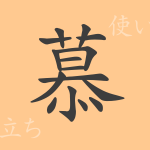Every person inevitably faces the fate of “end” and etches their memories onto gravestones. The kanji (漢字) “墓” (はか, haka), which has been passed down through Japanese culture, is more than just a character; it is a mirror reflecting culture, philosophy, and human emotions. In this article, we delve into the profound world of “墓” (はか, haka), exploring its origin, meaning, usage, pronunciation, stroke count, radical, as well as compound words and idiomatic expressions.
The Origin (語源, ごげん, gogen) of 墓 (はか, haka)
The origin of the kanji (漢字) “墓” (はか, haka) can be traced back to ancient China. The character’s shape represents a burial mound created by digging up the earth, and it has long been used as a symbol indicating the presence of a buried person. This kanji (漢字) was introduced to Japan along with the spread of Buddhism and the kanji (漢字) culture.
The Meaning and Usage of 墓 (はか, haka)
The character “墓” (はか, haka) refers to an underground facility or location created for the burial of the dead. Metaphorically, it can also symbolize the end of something or being forgotten. In usage, it frequently appears in contexts related to death, such as “墓地” (ぼち, bochi – graveyard), “墓参り” (はかまいり, hakamairi – visiting a grave), and “墓穴” (ぼけつ, boketsu – grave).
Pronunciation, Stroke Count, and Radical of 墓 (はか, haka)
The kanji (漢字) “墓” (はか, haka) has features related to its shape and meaning.
- Pronunciation: The on’yomi (音読み, おんよみ, on’yomi) is “ボ” (bo), and the kun’yomi (訓読み, くんよみ, kun’yomi) is “はか” (haka).
- Stroke count: It has a total of 13 strokes.
- Radical: The radical is “土” (つち, tsuchi), which means ground or earth, directly connecting to the meaning of “墓” (はか, haka).
Compound Words, Idiomatic Expressions, and Proverbs Using 墓 (はか, haka)
There are numerous compound words, idiomatic expressions, and proverbs that include the kanji (漢字) “墓” (はか, haka). Let’s look at a few examples:
- “墓穴を掘る” (ぼけつをほる, boketsu wo horu) – To worsen one’s situation through one’s own actions.
- “墓場まで持っていく秘密” (はかばまでもっていくひみつ, hakaba made motte iku himitsu) – A secret that one will never reveal until death.
- “墓標” (ぼひょう, bohyou) – A marker indicating the location of a grave; also a symbol to remember past events.
Conclusion About 墓 (はか, haka)
The kanji (漢字) “墓” (はか, haka) is a significant cultural symbol that connects our lives and deaths. Its shape and meaning have reflected fundamental human emotions and values from ancient times to the present. Through this kanji (漢字), we can honor the memories of our predecessors and reaffirm the meaning of living. The character “墓” (はか, haka) will continue to exist quietly, evolving with our history.

























